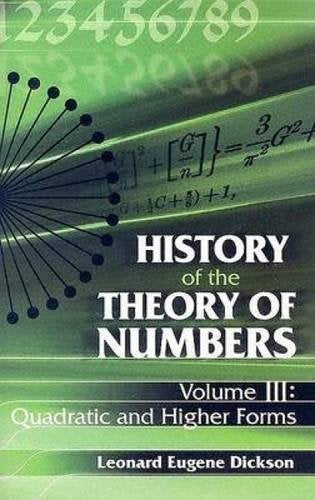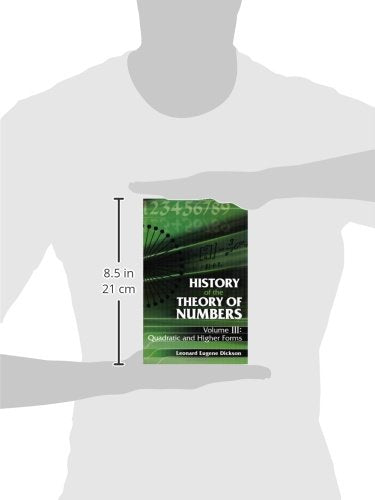Quadratic and Higher Forms: 03 (Dover Books on Mathematics)
Quadratic and Higher Forms: 03 (Dover Books on Mathematics) is backordered and will ship as soon as it is back in stock.
Couldn't load pickup availability
Genuine Products Guarantee
Genuine Products Guarantee
We guarantee 100% genuine products, and if proven otherwise, we will compensate you with 10 times the product's cost.
Delivery and Shipping
Delivery and Shipping
Products are generally ready for dispatch within 1 day and typically reach you in 3 to 5 days.
Book Details
-
Publisher: Dover
-
Author: Dickson, Leonard Eugene
-
Language: English
-
Edition: 1
-
ISBN: 9780486442341
-
Pages: 313
-
Cover: Paperback
-
Dimensions: 8.4 x 5.4 x 0.7 inches
About the Book
History of the Theory of Numbers, Volume 3: Quadratic and Higher Forms by Leonard Eugene Dickson is the final volume in a celebrated three-part series on number theory. Written by a distinguished mathematician, this book offers a deep dive into the fascinating world of quadratic and higher forms. Ideal for upper-level undergraduates and graduate students, the volume can be studied independently of the previous two volumes, which focus on divisibility, primality, and Diophantine analysis.
This volume covers a wide array of topics, including the reduction and equivalence of binary quadratic forms, integer representation, and the composition of forms. Dickson delves into higher-level concepts such as ternary and quaternary quadratic forms, cubic forms in multiple variables, and binary Hermitian forms. The text also includes detailed explorations of matrices, linear substitutions, and congruential theory of forms, providing comprehensive insights into the advanced aspects of number theory.
For those interested in a more mathematical approach, Dickson discusses irregular determinants, classes of binary quadratic forms, and the properties of forms with integral and complex coefficients. The book is enriched with detailed indexes of authors and subjects, making it an indispensable reference for anyone studying the theory of numbers.







